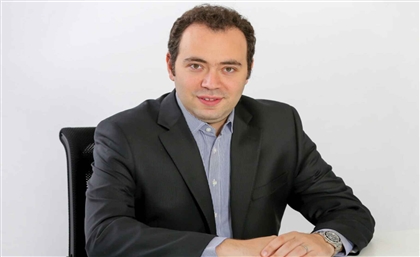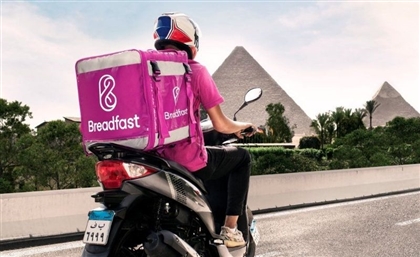On Halloween, We Ask 5 Entrepreneurs What Scares Them The Most About Egypt’s Startup Landscape
For the ecosystem is dark and full of terrors.

Startup culture is vigorously misleading. For outsiders, the ecosystem might look very affluent, flexible, and fun. In reality, however, it’s quite the contrary. From long sleepless nights spent on lists of bills and taxes to calculate, to stubborn customers and clients who aren’t easily satisfied, it's a tough world to navigate. And there sure is no fun in telling your employees they won’t be paid on time.
So, we would like, if we may, take you on a strange entrepreneurial journey. From fintech to the creative industry, we speak with Eksab’s CEO Aly Mahmoud, PayMe’s co-founders Doha Ahmed and Mourad Ashry, Excuse My Content’s CEO Mustafa Sharara, and Jidar’s CEO Sara Gaafar as they tell us about their deepest entrepreneurial horrors.
Aly Mahmoud - Eksab

“What scares me the most about the startup ecosystem here in Cairo is how hard and expensive it is to hire and retain good talent,” Aly Mahmoud tells Startup Scene. “It’s either you find someone who ruins your business or a perfect fit on whom you spend up all your funds.”
Mahmoud is the CEO of Eksab, the region’s first fantasy sports game where players guess the score for a chance to win a prize, ranging from a cap (like the one he’s wearing in the photo) to a game ticket.
“Usually the talented people in the country leave or go work at multinationals, so as a startup it’s quite a challenge to find and retain qualified individuals at different sectors,” he adds. “So right now, the biggest challenge is that you basically need to convince these people that it’s better to work for a startup than to work for multinationals or to leave the country.“
Doha Ahmed - Pay Me

“What scares us the most about being a startup in the ecosystem is the customer,” says Doha Ahmed, the co-founder of Pay Me, a fintech startup that works with small and medium enterprises to provide tech payment solutions.
“Customers are extremely demanding and they always ask for many things, calling us around the clock,” she adds. “They could ask about a single thing three or four times in a single call, calling us 24/7.”
One situation that really got to her was at a marathon with Cairo Runners. “They had us as partners and had our logos stamped everywhere saying that they make their money transactions through us,” Ahmed says. “After the event was over, someone passed by our office and he wants to pay for the marathon – that has already happened – we spent a lot of time trying to convince him that the marathon happened five days ago.”
Not only that, they also tried to walk him through the system of online payments, that the whole point of this was not to pay paper money at physical offices, and that in order to make a transaction through PayMe, customers pay through the website or through the Fawry kiosks.
Mourad Ashry - Pay Me

“I thought about this question a lot and decided that what scares us the most is customer satisfaction,” says Mourad Ashry, who’s also Pay Me’s co-founder and CEO. Pay Me’s model is B-to-B-to-C, so they have two clients; the companies which we provide online payment methods to, along with their customers. So they always have feedback from both sides; this one is upset about one thing and that one is upset about another thing.
“The Egyptian customer isn’t very easy to satisfy – especially when you’re working on a new product such as online and digital payments,” Ashry explains. “So, it’s always unpredictable. It’s like we’re firefighting all the time.”
He tells us about one situation that terrorised most of the team for an entire night. Two days ago, Ashry received an e-mail from a customer who said that Pay Me made a transaction from his account of an amount that he hadn’t paid.
“Our entire business runs on money, so we transfer money all the time. So that was a catastrophe, could grow into a scandal and take our business down the drain,” he says. At midnight, the Pay Me team went through an investigation as they looked into the system and into their daily reports. They found that the customer really had an amount of money transacted from his account. “We stayed until 3 AM trying to solve the mystery and we found the customer sending us back saying that he finally remembered what he spent this amount of money on. ‘I bought something three months ago and forgot.’”
Sara Gaafar - Jidar

“What scares us the most about being a startup in Cairo is basically the clients,” says Sara Gaafar, who’s the CEO of Jidar, a wall-artists directory connecting painters with clients. “We work with visual art and design, which is a complete disaster in Egypt.”
With the economic changes happening every day in Egypt, and Sara’s team already selling a product to a very niche market, whenever a problem happens in the economy, Jidar’s clientele decreases, subsequently making them less able to bring about job opportunities for the artists.
“We would need to import sprays for example, different materials so we could actually boost our product, to stand out from the crowd of competitors in the market,” says Gaafar. “So, we definitely don’t have access to many products that were there before, like spray paint. We exert so much effort to be able to get hold of this material.”
Jidar also had a terrorising night. “It was the first time for us to work with a big corporation, so it was very terrifying and we wanted the application to be perfect,” she says. “The client didn't sleep the night we were doing the work; it was done overnight, so he stayed awake tracking the artists’ progress. In the morning, he started expressing how disappointed he was with the final outcome, although he confirmed everything with us, so it was a situation where the artists have worked, finished and were leaving, while the client isn’t satisfied. So I reached the point where I didn't want to pick up the phone, I didn't want to wake up. It was too much to handle and I didn’t know what to do.”
In addition, the client hadn’t paid yet. “So, on top of all that, I didn’t know how I will pay the artists. It was a disaster.”
What they did was sit down with the client and educate him about how the process goes. “We explained that this is paint, this is art, and the outcome won’t be exactly like what he imagined.”
Mustafa Sharara - Excuse My Content

Mustafa Sharara’s entrepreneurial Halloween is deviation. He runs a content creation agency called Excuse My Content. They have been working for two years and they have been growing really fast. “Compared to last year, the difference is very vast in terms of revenue, growth, projects, and everything else. I become very scared to deviate from our vision, especially that we found more opportunities, more projects,” he tells Startup Scene.
Sharara finds himself fact-to-face with decisions, if made, would deviate me from Excuse My Content’s vision. "I'm always scared to be impulsive in my decision-making, especially that we’re still young and we want to be consistent with the quality of what we’re good at.”
In the media world, Sharara knows that it’s very easy to give in to the flow, especially when the money package gets bigger.
“In Cairo, or in Egypt as a whole, the video content market is huge. It’s very dynamic, and it all depends on your vision,” he says. “I get very scared to dilute ourselves as a team to attempt to work on everything at the same time.”
For two years, Excuse My Content has watched their audience get more and more discerning, be it the clients or the viewers. “It’s not easy to produce them any content,” Sharara adds. “It’s also very scary to compete with multinational agencies, especially that we’re a local video content agency.”
Excuse My Content used to work on either small or medium projects, and they were only acquainted with one big-scale project and it came by coincidence. “So, in the beginning of our second year, this year, we had a brief for a huge project and the client was really eager on working with us, but it would be a direct seller,” he says. “It was the toughest decision I've had to make and I was scared that, if we went with this project, there would be great exposure and wide distribution, but it wouldn’t go in line with our vision, and thus we would lose credibility.”
But the decision was made, he declined, and the horror was over. Be it technical or creative, the startup industry is a scary world only to be survived by entrepreneurs with strong-willed and long-suffered qualities.
Photography by #Mo4Productions.
Photographer: Haleem El-Shaarani
Videographer: Ahmed Watani
Sound specialist: Abdullah Hussein






















